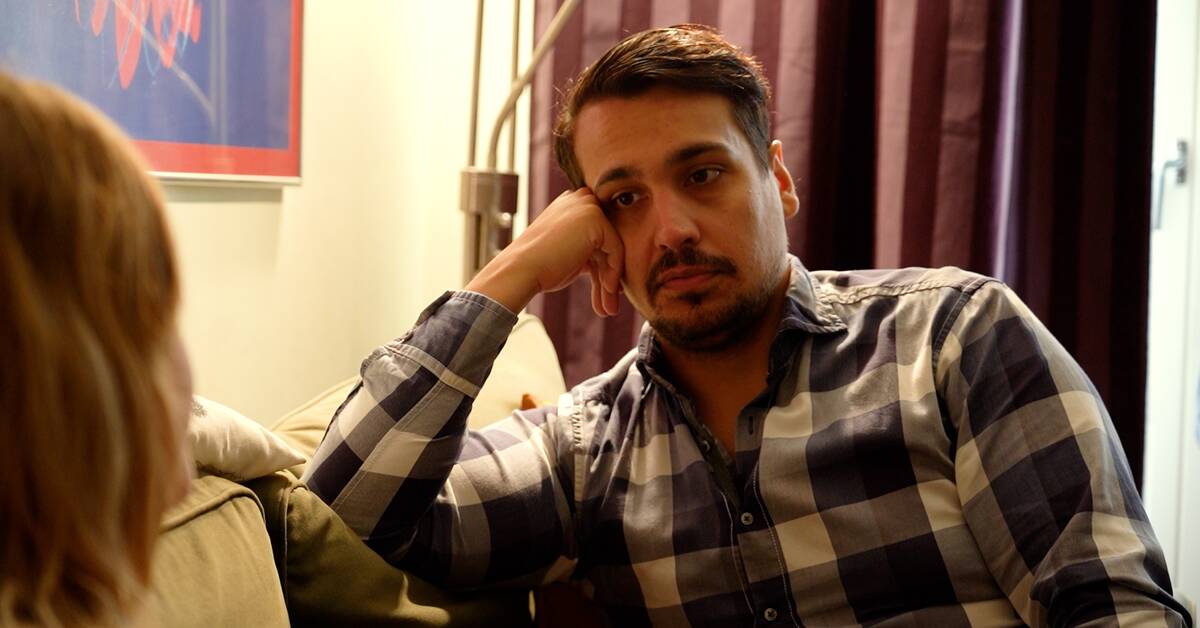Behind the statistics are the doctors who have spent many years of their lives in training and in the receptions long after the passes are over.
Everyone can't take it anymore and leaves.
Common to all the doctors that SVT talks to is that they describe a work environment that, in addition to the long hours and the tough efficiency requirements, is characterized by a numbing ethical stress.
- We are constantly running faster and faster and cannot give people the care they deserve, says a doctor at the end of his ST in western Sweden.
Medical student Sky, who has only one semester left in her studies, is skeptical about the working environment that awaits after the education.
- When I started to get out on the floor, I realized that reality didn't look like I thought.
It's been a struggle mentally and it's scary to leave the usual clinical track although it's also exciting to try something new, says Sky.
Left after twelve years as a general practitioner
Panteha, who left life as a clinician after twelve years as a specialist in general medicine, describes the break with healthcare as a divorce.
The reasons are often complex and you see no other way out.
According to the National Board of Health and Welfare's recommendations, an average of 1,100 patients should be listed per full-time doctor at a health centre.
At Panteha's job, the doctors had 3,500 each when she resigned.
She describes a constant concern about the lack of continuity in patient contact and the long-term damage whose consequences can be difficult to measure.
- It is not possible to understand the ethical stress if you have not been in it, she says.
Patient died in the toilet
SVT has also spoken to a doctor at the end of his ST who testifies to patient-unsafe routines that cause stress.
As an example, the doctor mentions an occasion when the staff was told that they were investigating too many patients for a blockage in the lung.
In order to make care more efficient, the hospital introduced a routine that everyone who was investigated would first undergo a "normal" X-ray before the X-ray.
A patient with very clear symptoms therefore had to wait and then visited the toilet.
There is too much to do on the floor and time is running out.
After a while, it is discovered that the patient has died in the toilet from a blockage in the lung.
After the incident, the directive was scrapped.
- Such things happen all the time.
If we try to change it within the organization, we will be punished, says the doctor, who is now considering retraining as a fine carpenter.
The doctor describes how you can be "punished" when you bring up the problems through worse passes and missed salary increments.
The assistant doctor: "Want to be able to live too"
For assistant doctor Michel, it is the insecure jobs and the stress surrounding the patients' safety that are the basis for the decision.
He has decided to expand his skills in IT to be able to work with medical IT.
- You can feel frustration with the pain patients for whom you never manage to do anything, and so you see them in pain all the time.
So you have to sit there and instill some form of hope.
It eats away, he says.
- You spend so much time of your life at work, but you also want to be able to live.
SYLF: Afraid to raise issues
In a Facebook group for doctors that SVT has had access to, many doctors express frustration that the union cannot do more to improve the doctors' working conditions.
Stockholm's chairperson of the Swedish Association of Young Doctors, Maria Belikova, says she shares the picture of doctors' work environment problems.
She describes that young doctors' insecure employment often leads to a widespread culture of silence and that many are afraid to discuss problems for fear of reprisals.
She believes that it makes it difficult for the unions to act every time.
- We cannot act if we are not told and we are not told because people are afraid, she says.
Watch assistant doctor Michel talk about why he is considering leaving the medical profession in the video above.

